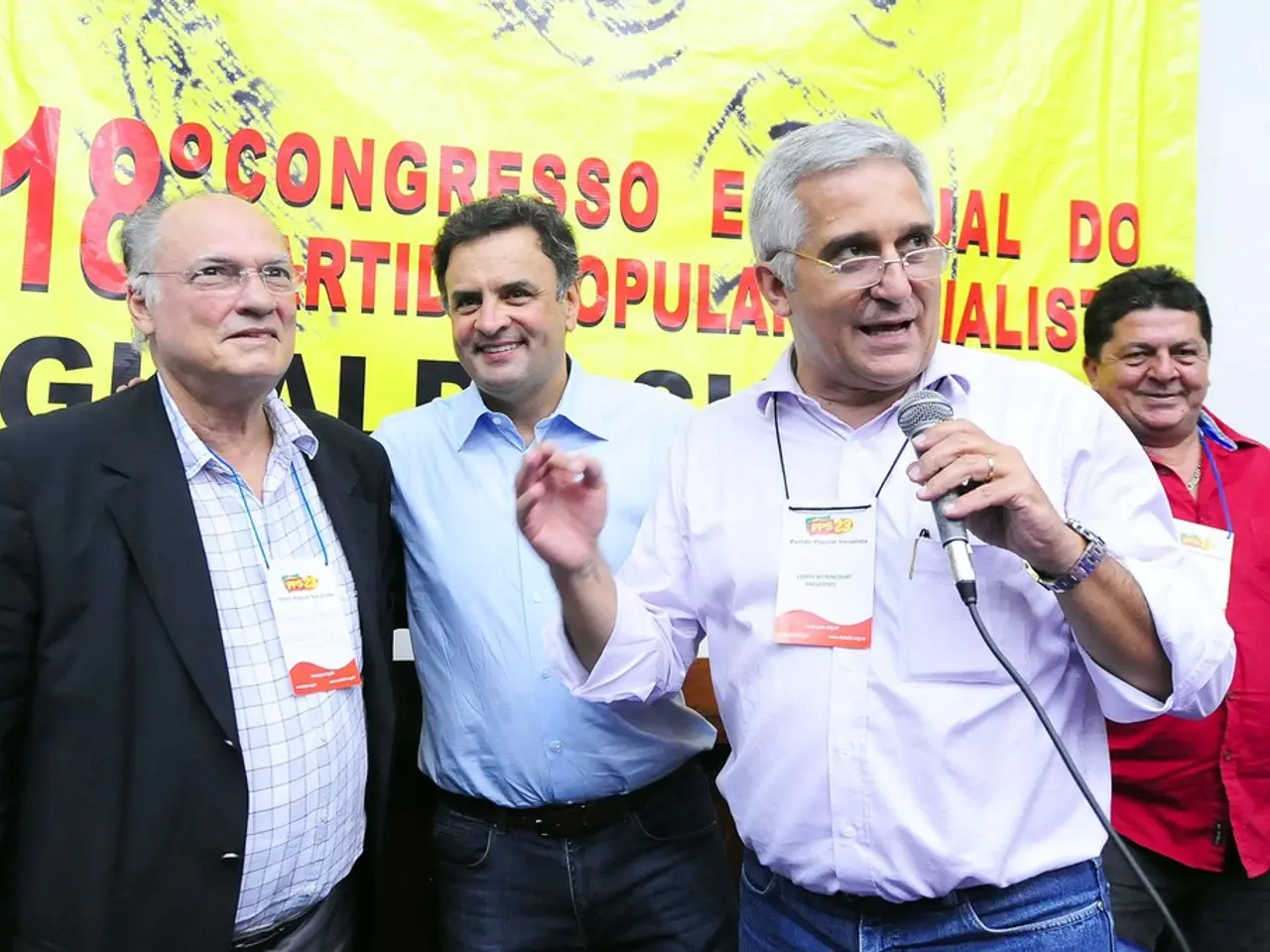Juan Lenzo advocates for incorporating community-based economics as a means to confront the tumultuous capitalist storm.
In the heart of Venezuela, the Communard Union is making strides in consolidating and expanding the communal economy as a strategic response to the ongoing capitalist challenges. According to a 2025 analysis by Juan Lenzo, a Venezuelan activist, the Communard Union is working tirelessly to strengthen its economic initiatives, integrating communal economic practices to better withstand external pressures and systemic obstacles.
Amidst significant economic challenges, including the revocation of Chevron’s license by the U.S. early this year, Venezuela has demonstrated resilience under President Maduro's government. The nation has experienced a GDP growth of 9.32% during the first quarter of 2025 and has increased non-oil exports by over 87%. This growth is supported by efforts to nearly achieve food sovereignty and the government's policies that provide wide access to subsidized basic goods and services, helping maintain a relatively stable purchasing power for many Venezuelan families.
However, the country still faces considerable challenges due to ongoing economic sanctions, international pressures, and the need to rebuild and diversify its communal and cooperative sectors. The Communard Union plays a crucial role in fostering local economic resilience through communal initiatives that emphasize collective ownership and cooperative business models. Their efforts are part of broader national strategies to counteract the effects of sanctions and economic blockades, which have historically sought to destabilize the country’s economy.
The Communard Union, with 117 communes as part of its effort and more expected to join, is primarily based in the Venezuelan countryside, focusing on primary production. Despite facing challenges such as access to fuel, distribution and marketing difficulties, high production costs, and competition with agro-industrial oligopolies, the Union is advancing projects in cattle rearing, coffee, and sugar cane to strengthen the economy of different communes.
One of the Union's significant initiatives is the Patria Grande del Sur project, a large productive endeavour that involves the Union, the Ministry of Communes, Brazil's Landless Workers' Movement (MST), and other popular organisations. The project is being developed in phases, with the first phase focusing on reactivating roadways, building community ties, setting up infrastructure, and launching productive activities. An agroecology school is being built as part of the project, with the MST taking the lead.
The Union is also setting up a camp together with the MST on an expropriated estate, formerly owned by Hugo Chávez, covering an area of 187 thousand hectares, suitable for cattle rearing, cereal and forestry production, as well as agricultural produce growth. The aim is to give shape to the Patria Grande del Sur commune, reaching out to nearby campesino communities.
The Argelia Laya Brigade, responsible for bringing new communes into the Communard Union, evaluates various criteria to determine their suitability. These criteria include the exercise of self-government, assembly processes, economic activity, territorial struggles, grassroots mobilization capacity, and legitimacy of spokespersons.
However, the Union faces a risk of its grassroots work becoming subordinate to institutional priorities when integrating with state institutions. There is also a risk of reducing the communal project to a mere exercise of receiving state resources and executing specific projects. The consultations have been beneficial for reactivating and strengthening grassroots assembly spaces, but these risks are being carefully navigated.
In essence, the Communard Union's journey is one of creative tension, mirroring the relationship between the state and popular power as defined by Hugo Chávez. The Union is developing a financing system to fund its own productive policies, aiming to integrate communes with processes that boost the organic life of the movement, not just growth in number. The Union's efforts are a testament to the nation's commitment to communal self-sufficiency and economic sovereignty.
In the midst of these political changes, the General News is reporting on the significant role the Communard Union plays in Venezuelan politics, as they strive to develop a financing system that funds their own productive policies and strengthens the communal economy. This innovative approach is part of the Union's efforts to achieve communal self-sufficiency and economic sovereignty, amidst ongoing challenges like economic sanctions and international pressures.






